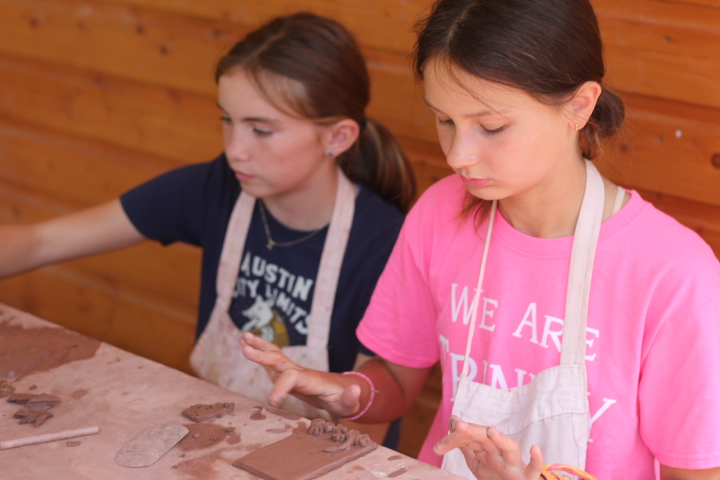If you’re seeking effective ways to foster your daughter’s self-esteem, you’ve found the right resource. This article breaks down actionable insights on how to help your daughter build self-confidence. From nurturing body positivity to cultivating strong social bonds, you’ll discover key strategies to support your daughter’s journey toward becoming her most confident self.
Key Takeaways
- Help build self-confidence in girls by encouraging their strengths, fostering independence, and showing physical affection to combat potential low self-esteem issues.
- Promote positive body image by challenging unrealistic beauty standards, ensuring focus on health and wellness, and parents/role models demonstrating body comfort and acceptance.
- Enhance skills beyond physical appearance through the arts, problem-solving activities, and healthy social interactions, while adults and caretakers can play a critical role in building self-esteem through quality engagement and encouraging pursuits.
Cultivating a Daughter’s Self-Esteem
Self-esteem is more than just a reflection of how much a child likes herself. It’s a measure of how she judges her worth, and it’s influenced by other people’s opinions and her successes and failures. Nurturing self-esteem in girls during their middle childhood years is paramount. This lays a strong foundation that supports them throughout their lives, contributing to emotional and occupational success in adulthood. By taking the right steps, parents and caregivers can effectively build self-esteem in their children.
Boosting a daughter’s self-esteem doesn’t just happen. It requires a conscious effort, and several strategies can help. Encouraging her to create a personal billboard that highlights her strengths, fostering her independence, and urging her to stand up for her needs and wants are all effective ways to promote a positive self-image.
However, mere praise is not enough to build a child’s confidence. Many children struggle with low self-esteem, and physical affection, which demonstrates love and acceptance, can foster a happy and confident child.
Fostering Body Positivity and Acceptance

Diverse group of girls playing together
Our society often places a high premium on physical appearance, and the pressure to conform to unrealistic beauty standards, such as unrealistically flawless skin, impossibly thin women, or those with curves in ALL the “right” places, can lead to mental health issues like eating disorders, self-harm, low self-esteem, and depression. Correcting misinformation about body image and challenging these unrealistic standards are critical to prevent judgments based on weight or appearance.
When raising girls, it’s important to focus on their identity beyond physicality and beauty. Parents can:
- Introduce critical thinking about a body-obsessed, appearance-focused pop culture
- Model nonjudgmental attitudes regarding body diversity, admiring physical strength and health over appearance
- Promote a healthy body image that prioritizes healthy habits and routines
Lastly, mothers’ and adult female role models attitudes towards their bodies significantly influence their daughters. Hence, they must model body comfort and steer clear of excessive complaints about their bodies. Parents can nurture body positivity by:
- Sharing their experiences with body insecurities
- Sympathizing with their daughters’ concerns
- Admiring other girls and women for attributes other than their physicality
- Demonstrating self-respect and value for others regardless of appearance.
Building Skills Beyond Appearance

Girl showcasing her artistic creation
Beyond fostering body positivity, additional steps need to be taken to build a girl’s confidence. Encouraging participation in the arts, such as music and dance, allows children to express themselves non-verbally and improves mental and emotional well-being, fostering their sense of self-expression and accomplishment.
Problem-solving skills are another valuable asset for building confidence in a girl. Training in this area enhances self-esteem and gives them a sense of capability when they make progress toward challenging and realistic goals. Activities like theater classes empower them to speak confidently and feel capable, teaching them to value their voice and strengths, much like confident people.
Lastly, sharing expertise and teaching daughters new skills provides practical knowledge and boosts their confidence through the sense of accomplishment gained from learning.
Encouraging Healthy Social Interactions
Social interactions can be challenging for girls, particularly during adolescence. Understanding how to cope with societal pressure to always be polite and avoid conflicts can help them navigate these tricky terrains. Parents should be vigilant for signs of relational aggression, such as nervous behavior or changes in academic performance, and take action to address these social challenges.
An open, honest dialogue about social experiences is vital. Creating a supportive environment where girls can share feelings without judgment allows them to express their emotions freely. Participating in performing and visual arts can also develop a child’s empathy, enhancing their confidence in social interactions and relationship building.
Lastly, teaching girls age-appropriate ways to express feelings, such as through art or physical activities, can develop their ability to understand emotions, critical for healthy social interactions. Respecting and validating a child’s feelings contributes to their ability to navigate emotions, empathize with others, and form respectful, trusting relationships.
Role Models’ and Boosting Confidence
Role models who are a little older such as a cousin, babysitter or camp counselor significantly contribute to girls’ development of self-esteem. Many girls look to social media to inform their choices and the way they feel about themselves which influences their self-esteem during critical formative years. Having real-life role models whom they can relate to can offset the virtual “models” they see online.
Spending time with positive role models like those above enhance daughters’ confidence because:
- Young female adults are choosing to spend time with them because of their personality traits and not their looks
- Being encouraged by role models whom they relate to, regardless of THEIR appearance, shows girls they can take risks and pursue their dreams
- These relationships show them there is so much more that is rewarding beyond simply the outside of a person.
Being around other role models, especially women, demonstrates that females can be each other’s cheerleaders and advocates. Healthy relationships with women, seeing women support one another and hearing women speak positively and encouragingly about one another will help boost a girl’s confidence and self-esteem. Young girls can start to see themselves in the eyes of these impactful young adult women instead of comparing themselves to the unrealistic pop culture standards.
Integrating Physical Activity and Team Sports
Physical activity has several benefits for boosting confidence, including:
- Enhancements in both physical and mental well-being
- Lower stress and anxiety levels
- Greater self-confidence and emotional stability
- Increased physical strength leads to enhanced mental strength and confidence
Regular exercise can help build confidence, boost confidence, and improve your overall well-being, while also enhancing your model confidence.
Setting and meeting exercise goals provides a sense of accomplishment that boosts emotional stamina and self-confidence. By making a very conscious effort to engage in physical activities, one can experience mental health improvements, which in turn increases interest in social interactions and the energy to tackle challenges.
Participation in team sports, in particular, can be especially beneficial. Research shows that girls who play team sports tend to have higher self-esteem. These sports teach children valuable life skills such as leadership and collaboration, bolstering self-confidence and encouraging personal development.
Addressing Academic Pressures and Achievements
School can be a source of stress for many children. For healthy adolescent development and to decrease negative behaviors, it’s necessary to strike a balance between academic demands and the psychological well-being of students.
Recognizing students’ academic successes through methods like establishing a ‘Wall of Fame’ can provide a confidence boost. It is most beneficial when recognizing the amount of work or effort that was required of the young student as opposed to the actual “grade” or outcome. Praising the process and the amount of focus and hard work encourages your daughter to continue that hard work, it shows her that you value the effort more than the “A”. Knowing she has your support and encouragement even if she doesn’t get the highest grade means she is reassured she is loved and valued despite the outcome.
Excessive academic pressure can lead to negative outcomes. The intensity of academic pressure correlates positively with the likelihood of adolescents engaging in problem behaviors, implying that higher academic stress can increase such risks.
Creating a Positive Home Environment
A child’s positive self-image and child’s confidence flourish in a supportive home environment adorned with love, respect, and consistent encouragement. Enabling children to make choices and participate in setting realistic goals fosters independence and a sense of achievement, which together boost self-confidence. Helping a child build confidence is essential for their overall development.
Parents’ behavior, including their reactions to mistakes and self-talk, serves as a powerful model for their daughters’ responses to challenges and setbacks. By offering stability, engaging in thoughtful communication, and enabling enjoyable activities, parents can help their daughters manage academic pressures effectively and become daughter media literate, while also ensuring their daughter’s school curriculum is well-rounded.
Finally, creative outlets such as the arts provide daughters with a valuable means for self-expression, contributing significantly to their confidence and self-advocacy.
Navigating Cultural and Societal Pressures
Cultural messages play a significant role in shaping a girl’s self-esteem. Girls with healthy self-esteem are more likely to:
- Question and decode negative cultural messages they receive from media and other sources
- Nurture a girl’s self-esteem helps her develop into a savvy media consumer
- Understand misrepresentations or harmful representations without compromising her sense of fun
Unfortunately, cultural messages that promote passive female roles, such as media portrayals of princesses waiting for rescue, challenge girls’ self-assurance. Parents can build a positive mindset in their daughters by eliminating or limiting exposure to negative language from electronics, television, social media, and music.
Finally, here are some ways parents can help their daughters handle peer pressure effectively:
- Share family values and celebrate their achievements to encourage girls to feel good about themselves
- Welcome positive influences and understand the negative ones
- Prepare daughters from a young age to say ‘no’ to bad situations
By implementing these strategies, parents can support their daughters in resisting negative peer pressure and making positive choices.
Summary
In conclusion, helping a daughter build self-confidence is a multifaceted task that requires consistent effort and a supportive environment. From fostering body positivity, and cultivating a strong self-esteem, to encouraging healthy social interactions, and being around other young women and positive female role models, plays a crucial role in shaping a girl’s self-image. Physical activities, especially team sports, can be particularly beneficial. It’s also essential to help your daughter navigate academic pressures and societal expectations, all while creating a positive home environment.
Remember, every girl is unique, and what works for one might not work for another. Listen to your daughter, respect her individuality, and most importantly, let her know that she is loved and valued for who she is and not simply how she looks or what she produces. It’s a journey, not a destination, and every step you take to boost your daughter’s confidence brings her one step closer to becoming a strong, confident woman who can navigate a tough world out there.
Frequently Asked Questions
Why does my daughter have low confidence?
Your daughter may be lacking confidence due to feeling unsupported or criticized, which can lead to doubts about her abilities and self-worth. Consider her exposure to social media pressures through TikTok or YouTube videos. It’s important to provide her with love and support to help boost her confidence. This is not to say she’s not receiving it at home, but perhaps exposing her to groups of peers to help enforce the messages she is receiving at home like on a team sport, in a theater group or sleepaway summer camp.
What can I say to a girl to boost her confidence?
You can boost a girl’s confidence by telling her she’s strong, and fast, and that she makes you proud. Compliment her on things beyond her appearance, such as her capabilities and achievements. Encourage her by recognizing her efforts and specific qualities, like telling her she did a great job calming down an angry toddler or posing a thoughtful question in class.
How can I help my daughter navigate academic pressures?
Help your daughter balance academic demands with her well-being by encouraging artistic activities and creating a supportive home environment. This will help her navigate academic pressures and excel in her studies. Providing her another outlet will help her balance her interests and focus to see outside of just a grade or achievement.
How can physical activities and team sports boost my daughter’s confidence?
Encouraging your daughter to engage in regular physical activities and team sports can positively impact her physical and mental well-being while enhancing her self-confidence. Embrace the opportunity to support her in exploring these activities. Moving her body, feeling the adrenaline, being supported by peers and hopefully doing some of it outside will all help her build a healthier mindset.
What role does a female role-model play in boosting my daughter’s confidence?
A young role model who perhaps your daughter admires as “cool” can help your daughter’s confidence by acknowledging her qualities beyond appearance, encouraging independence, and spending quality time with her. This helps her develop a strong sense of self-worth and independence.

